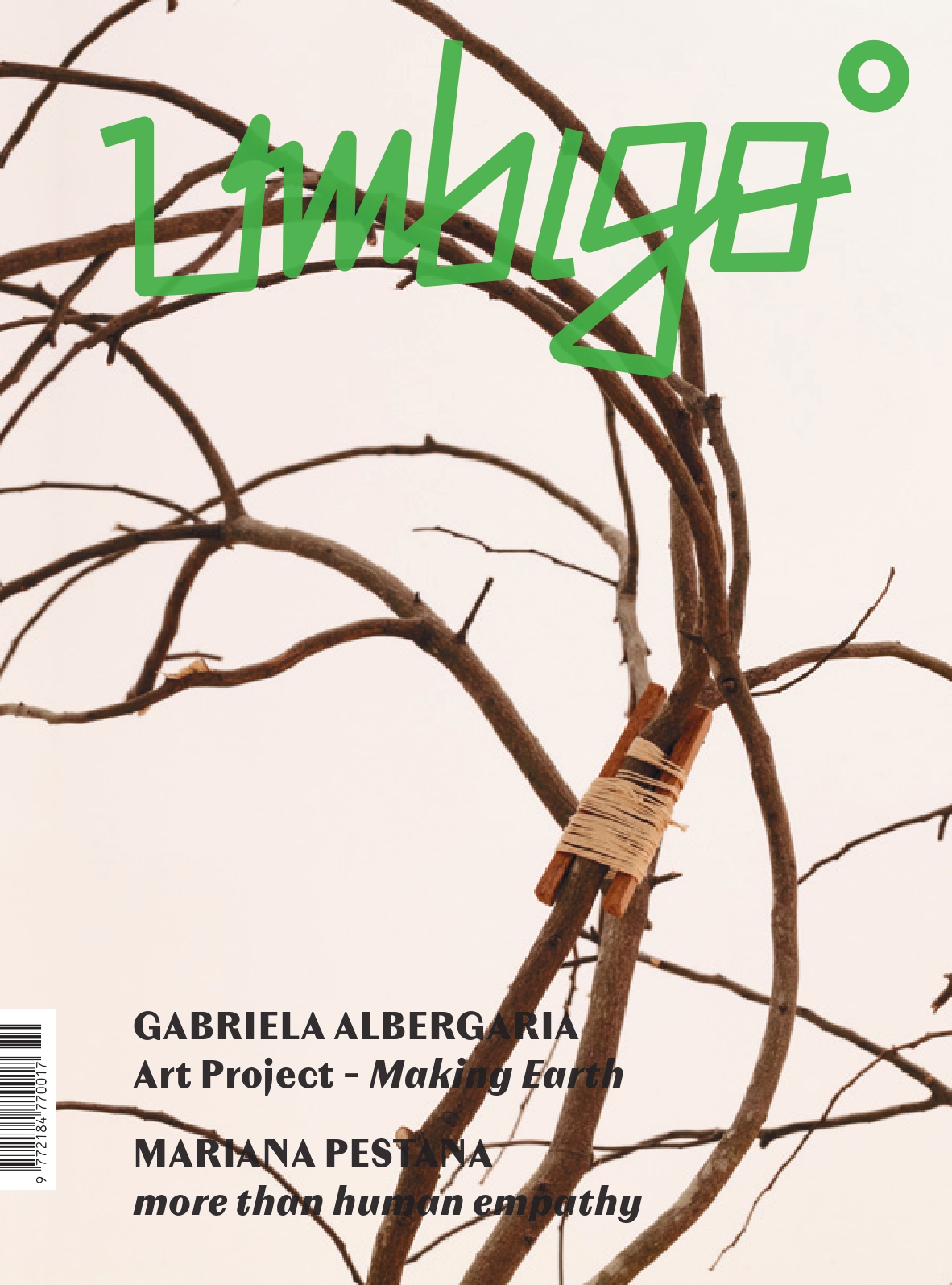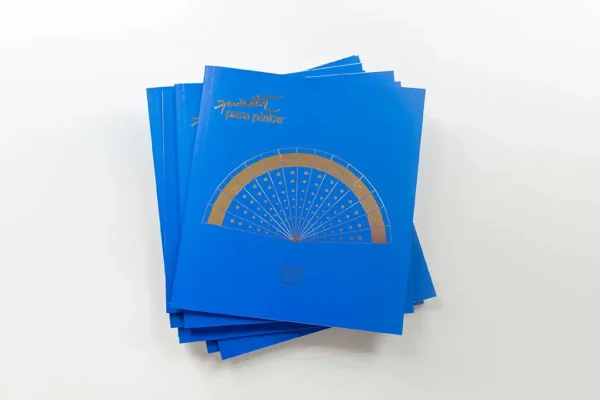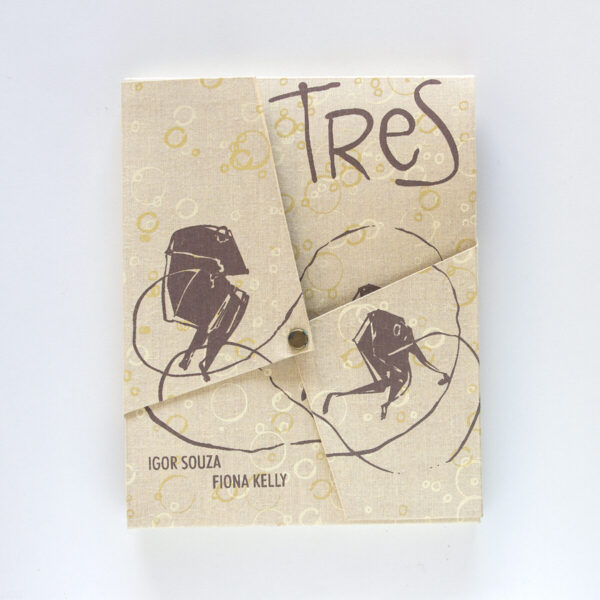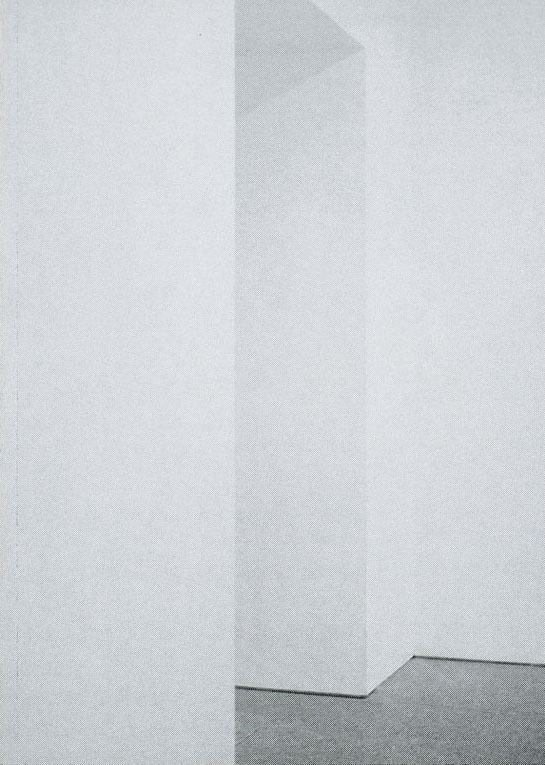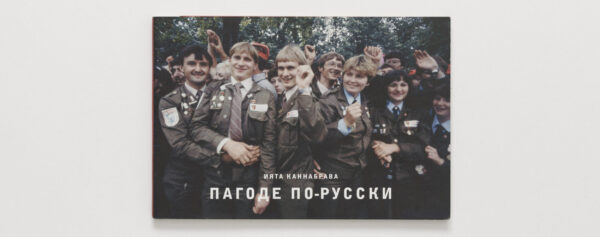March is the start of a new season and, as usual, the year’s first Umbigo issue. In 2022 we celebrate two decades of life with a revamp of our image and the publication of four unprecedented magazines dedicated to political, social and ecological topics which we consider decisive in contemporary thought, taking into account their connection to the artistic and cultural context. Four magazines, four episodes that will come out in every new season, where we stimulate reflection with an even greater number of pages.
On the theme of Nature, this first episode, issue # 80 features articles, art projects and essays that attempt to probe new practices and perspectives on ecology and community within art, philosophy and spirituality – fertile subjects in ethical and aesthetic debates and developments, which have fed the narratives of many artists and institutions.
Mariana Pestana is the curator responsible for this edition’s print exhibition, entitled empatia mais que humana, for which she invited the collectives The Rodina, Practice Architecture, Studio Ossidiana and Orkan Telhan + elli, and artist Calum Bowden. In empatia mais que humana, artists and curator question concepts of interspecies empathy, interdependence and coexistence, proposing a guide to “disembodiment” and “decentralisation”.
In this issue, the Art Project and the cover designed by Gabriela Albergaria are essential, as well as an interview where the artist talks about her work and the importance of contact with nature, landscape studies and research on gardens and the practice of drawing.
In the Essays section, we have four articles: Alice Bonnot talks about Produção de Arte Permacultural; Michael Marder interconnects phenomenology, philosophy and ecology in O Futuro é Vegetal!; Renny Pritikin reflects on the broad field of photography and the way Klea McKenna and Meghann Riepenhoff work with matter and the most primitive technology of photography; and Catarina Rosendo recalls the prescience of Alberto Carneiro’s work in ecology and art.
Pedro Vaz and Juliane Tübke are the artists invited for the Visual Essays: the former on the construction, mechanisation and transformation of the landscape; the latter on meteorology, rain and the physical and proximity geographies of Kochi, India.
Three interviews debate the topics of climate change, climate justice, environmental policies, but also geology and cultural ecologies. The guests are the movements and collectives Extinction Rebellion and Climate Collective, represented by T.J. Demos, and the artist Miguel Sbastida.
Umbigo also highlights the art and technology biennale INDEX, in Braga, the interview with Vicente Todolí and Fiammetta Griccioli about Metaspore by Anicka Yi, at HangarBicocca, and the “material turn” proposed by Beyond Matter.
The fifteenth edition of Dialogues proposes to break away from the usual artistic project to invite the scientific illustrator and designer Raquel Raimundo, as she develops a didactic approach to the project, recalling the pedagogy of guided tours, school programmes and individual peripatetic exercises through the gardens.
In the section Partida Bélgica, Francisco Pinheiro talks to Magali Reus on the occasion of Shadow Tonics, at the Fons Welters gallery, Amsterdam, and reviews the exhibition Pandemic Pandemonium by Neïl Beloufa, at C L E A R I N G.
The 80th issue of Umbigo also unveils six new sections: pov (point of view), conducted by Henrique Machado da Silva, migrates from our online platform to an interview with the Climaximo collective; Walking Conversations, a project by Carolina Trigueiros, invites António Poppe for an introspection through the countryside; the collaboration between Umbigo and Brotéria, this time between Jesuit priest José Frazão Correia and Margarida Alvim, founder of Casa Velha; Genealogias, by Carolina Machado, “on the genesis of an affirmative‘[aest]ethic’ in the Portuguese context”; The Velvet Room, conducted by Colin Ginks, challenges four Greek queer artists to create four Postais da Periferia; and Conversation Piece, with the support of the PLMJ Foundation and developed by the curator João Silvério, talks about the works of Ana Pérez-Quiroga and João Leonardo, both part of the PLMJ Foundation’s collection and on which this section is focused.
Finally, UmbigoLAB #11 talks about Pedro Gramaxo’s profile in this networking platform for art sponsored by the Millennium bcp Foundation.
Considering the Russian invasion of Ukraine, Umbigo invited Sérgio Fernandes to design a back cover that underlines Umbigo’s message of solidarity with the Ukrainian people.
